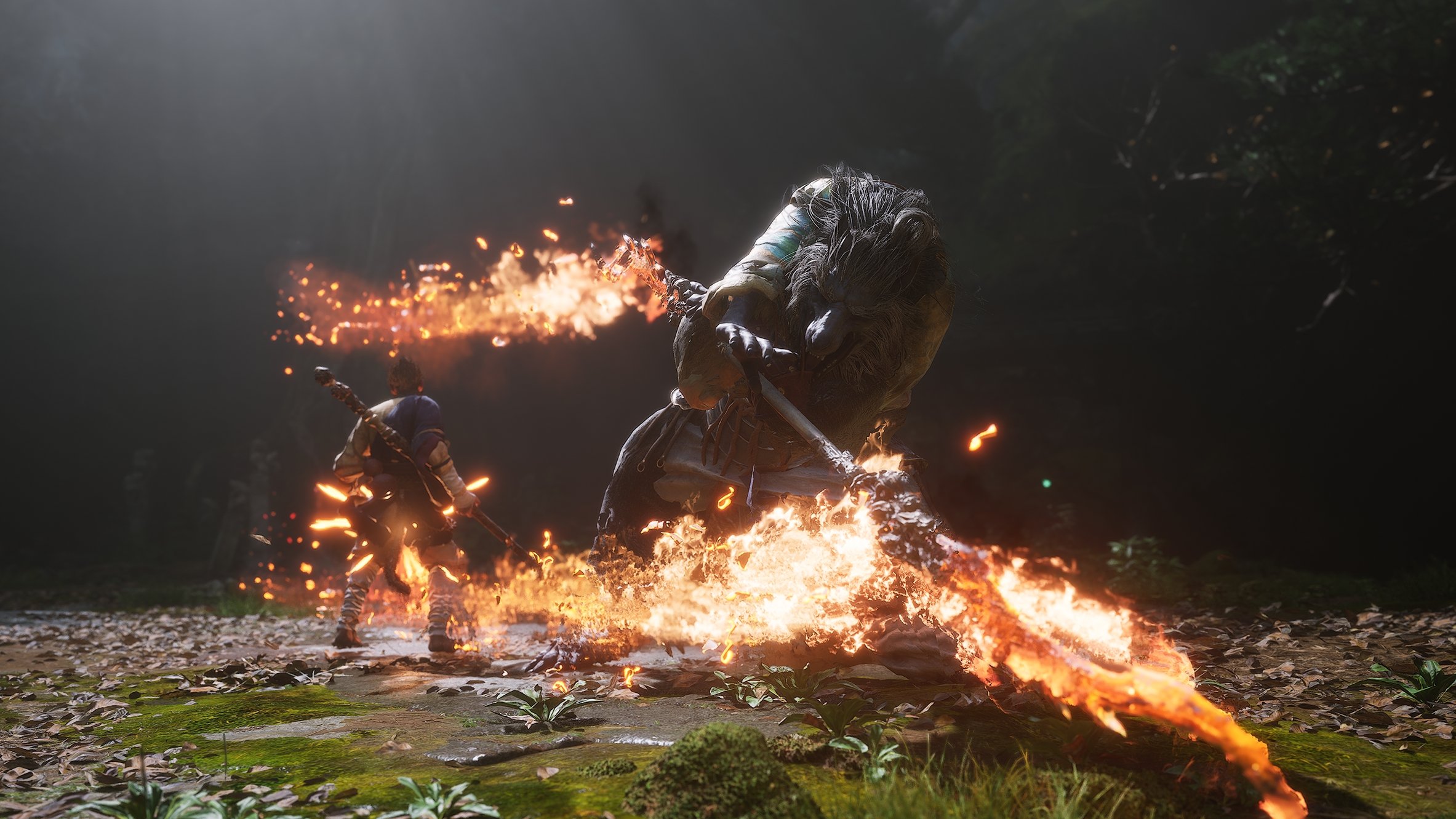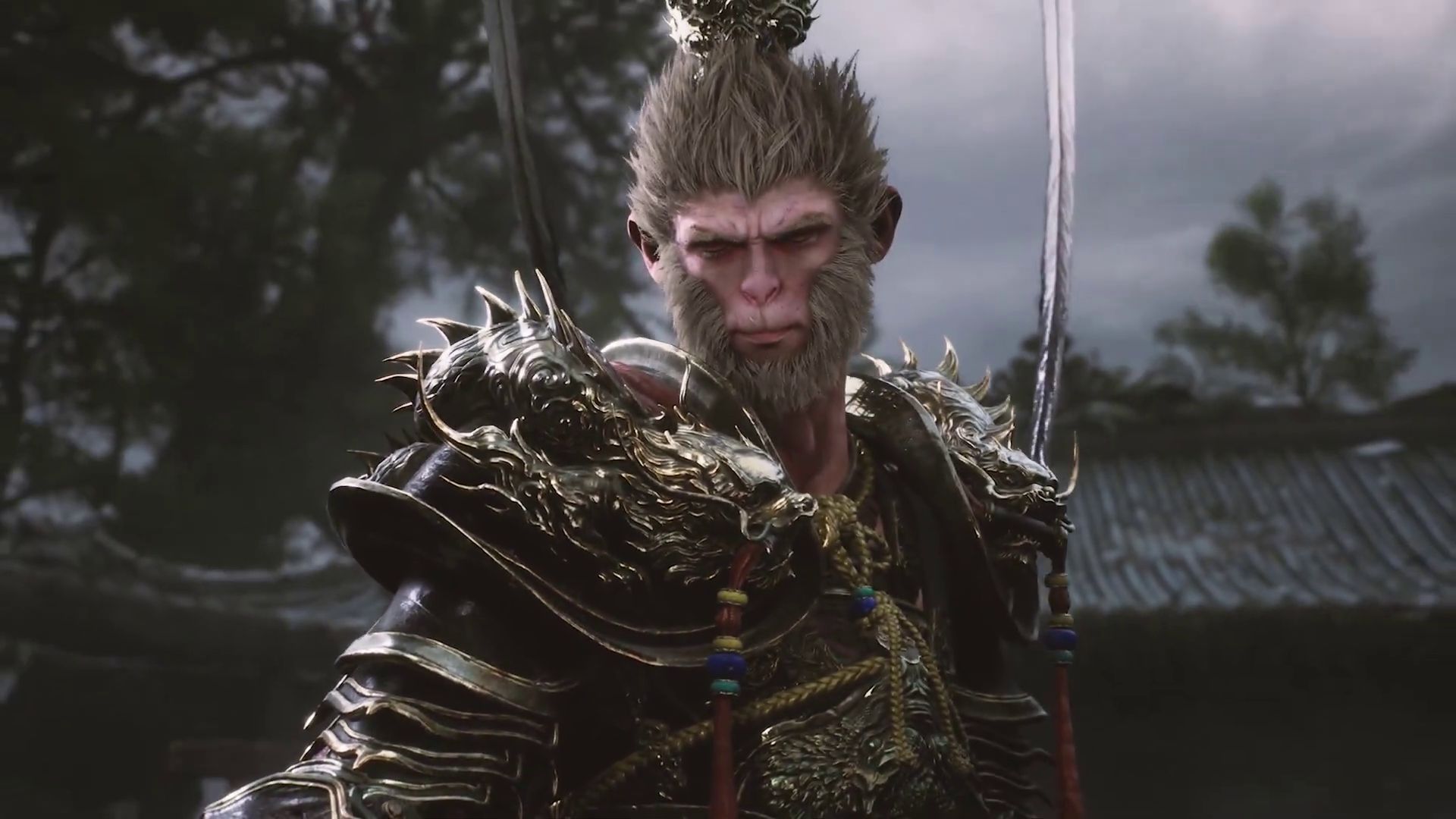It’s been said almost every time an excellent single-player title has been released that the genre/release model/format is here to stay. Despite the machinations of the live-service “industry” (such as it were) and the push for more games-as-a-service titles, focusing on a finite story contained within a campaign is also a pathway to success. The conversation emerged multiple times last year due to the universal acclaim of titles like Baldur’s Gate 3, Alan Wake 2 – the list goes on. That you could deliver a compelling single-player experience, and it would lead to massive returns.
However, it’s all the more noteworthy after the launch of Game Science’s Black Myth: Wukong. Not because it’s successful on a level unseen from a single-player title – over 2.4 million peak concurrent players on Steam and 10 million copies sold in just four days – but because of how it’s made, and the general vibe of the industry.
This has been a year of great successes, but the failures stick out all the more due to how avoidable they seem. Suicide Squad: Kill the Justice League, Skull and Bones, and now add Sony’s Concord to the list – it’s easy to feel like some game developers (and publishers) just don’t understand what players want. Never mind that free-to-play live-service efforts like The First Descendant and Once Human scored big, while Sony’s Helldivers 2 hogged all the attention for months after launch.
What’s even more interesting is how Suicide Squad and Skull and Bones are playable solo. They do offer single-player-focused campaigns with an extensive amount of content. The overall quality of the solo experience leaves something to be desired, especially at $70 with microtransactions attached, but they are playable without friends. They probably could have done well based on marketing alone, and yet, both titles suffered such a thorough rejection from players that it’s extraordinary.
This brings us back to Black Myth: Wukong. Yes, it’s a much better game with a developer who fulfilled its every ambition. And yes, you could point to the fact that it’s very successful thanks to its Chinese audience, but remember that China is a region where free-to-play games rule. Titles like Zenless Zone Zero, Honkai: Star Rail, Genshin Impact, Wuthering Waves, and even Naruto Mobile continue to bring in millions of dollars from the region alone. So why has there been so much enthusiasm for Wukong?
In many ways, it comes down to no other game offering the same experience, and I don’t mean in terms of action RPGs or action-adventure games. It’s not even about the graphics, as gorgeous as they are. There’s simply no other title like it, whether it’s incorporating the concepts into gameplay systems or bringing over so many epic moments. Perhaps more importantly, is the fact that no other game does it this well.
We could go on about the incredible Transformations and Spirit Skills, how good the combat feels despite some of its quirks or the sheer epicness of the bosses. The sheer amount of secrets alone is also noteworthy as you explore brand-new areas and reap significant rewards for beating powerful threats (or even just caring to pursue a seemingly innocuous plot thread). It’s easy to point to other games offering similar and arguably better exploration experiences – but none of them have the same charm.
That’s a significant part of the appeal and why so many unexpected titles have flourished this year. Titles like Final Fantasy 7 Rebirth, Tekken 8, and Like a Dragon: Infinite Wealth have done well, but their success has been eclipsed by titles like Palworld, Helldivers 2, and now Black Myth: Wukong.
It’s not because they’re inherently bad games – in fact, they’re some of this year’s best. However, the other three offer something new and different. The buzz from the initial gameplay showing, and how it continued looking impressive over the years, built the hype even more, further cementing Wukong’s success.
It would have been easy for Game Science to go different routes with its vision. It could have easily opted for an open world and tossed in plenty of busy work for content’s sake. The loot system could have been expanded further, with drops and all the min-maxing the genre is known for. The team could have even leaned into the Souls-like mechanics more, making death more punishing or slowing down the pace of the combat much more. There could have been microtransactions at launch, and very few would have complained, given how much they love the game.

Yet despite all of that, it stuck to its guns and delivered what it set out to offer – a gorgeous, single-player-focused, linearly driven, complete action RPG. Every aspect of the game, from Wukong’s attacks and spells to the personality of its bosses and the structure of its campaign, has been developed from that perspective, and it’s a success. Believing in one’s vision to that extent isn’t easy, and it doesn’t always lead to success – look no further than the Dead Space remake which is incredible, yet failed to ignite the market (though there are other circumstances to consider).
At the end of the day, Black Myth: Wukong should remind the industry that single-player titles – even those that don’t have thousands of choices, dozens of endings, and oodles of replay value – can become breakout hits. Any developer can present a fresh concept with gameplay befitting its systems, and deliver a memorable experience that millions will enjoy. It’s also a huge motivator to other projects like Phantom Blade Zero and Daba: Land of Water Scar – that there’s potential success at the end, regardless of how rough the start has been.
It’s also a wake-up call to publishers – that a relatively small team (at least in the number of developers and their resources) with a fresh vision can deliver big. Keep in mind that Game Science was founded by former employees. We may not have gotten Black Myth: Wukong if they didn’t pursue this endeavor, but you have to imagine some company wants to emulate that same success within its infrastructure.
Of course, it should also serve as a reminder to those taking the live service route because it could lead to more lucrative returns. There is another route that can prove successful even if it requires years of development.

Contrast this to Microsoft, who shut down Tango Gameworks of Hi-Fi Rush fame before selling it off because it reportedly didn’t want to invest in a sequel. Or shuttering Arkane Austin, who allegedly wanted to return to its immersive sim roots in a potential new Dishonored game. On the bright side, at least it hasn’t tried going full live service for all its studios like Sony, an endeavor that caused major repercussions.
Where Game Science goes next remains to be seen, but if the response to Black Myth: Wukong is any indication, it can excel by expanding on its universe and bringing its creative visions to life. Even if it goes in a completely different direction, the world will be watching, and that alone is a testament to its impact.






/origin-imgresizer.eurosport.com/2024/09/01/4034778-81833208-2560-1440.jpg?w=150&resize=150,150&ssl=1)







